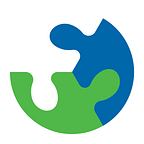The power behind the data
By Mary Hodges, Communications Officer
In 2018, when the Reproductive Health Supplies Coalition gathered in Kathmandu for its General Membership Meeting, the Global Family Planning Visibility and Analytics Network (VAN) was still in its pilot stages. We were excited about the potential of increased visibility to avert disruption in the flow of supplies. But we had no idea how crucial this visibility would be to our community weathering a global pandemic and growing geopolitical instability.
The whole world now intimately understands that no one is an island immune from supply chain shocks. Our strength comes in working together to prevent issues. And when inevitable disruption strikes, strength comes in seeing the problem before it is too late, so we can do something about it to stay resilient.
The VAN has proven it can provide us with these insights needed to be resilient, especially at the country level.
Five years and 36 member countries later, VAN users and advocates met at the 20th General Membership Meeting in Accra, Ghana. At our largest VAN gathering since its inception, we welcomed new VAN Ambassadors from Benin, Burkina Faso, Liberia, Niger, Nigeria, Rwanda, and Togo. During the week, new and existing VAN Ambassadors had the opportunity to share how the VAN has supported country resilience in the face of potential supply chain shocks.
Preventing overstocks or stockouts
Bentoe Tehoungue, the VAN Ambassador from Liberia, described how using the VAN helped foster resilience in her country. “The VAN has helped us better manage our supply chain. Thanks to our collaboration with partners on the VAN, we identified a potential overstock of 650,000 units of injectables. So, we worked with WAHO and the United Nations Population Fund to split and postpone orders,” she noted.
Without the VAN, Cyclone Idai and Freddy would have severely disrupted Malawi’s supply chain. Instead, they were able to move products from facilities that had enough stock to weather the storm to those that did not, so no one experienced empty shelves.
Fostering strong regional relationships with product transfers
Even more incredible is when countries work together to ensure supply security in the region and across the African continent. Nigerian VAN Ambassador, Mr. Lawrence Anyanwu, described how Nigeria helped a neighboring country, “The VAN alerted us that we had an overstock of injectables. Using the VAN, we worked with partners to divert $1 million dollars’ worth of injectables to Zambia, who needed it. Despite COVID’s disruptions to the supply chain, the VAN helped us avoid costly expiries.”
Togo has been on the giving and receiving end of product transfers. In 2021, Togo received 50,000 units of injectables from Niger and in 2022, transferred multiple products to Côte d’Ivoire.
Supporting strong data quality for decision making
In Rwanda, the VAN has been integrated into their digital health ecosystem so it can interact with other health and logistics information management systems. A more holistic view of Rwanda’s data helps prevent supply chain snafus.
In Burkina Faso, all social marketing organizations can submit their procurement plans using the VAN, which improves coordination among them, the Ministry of Health, and external donors. VAN data has been so valuable in Benin that they have included it in their government budget.
Sharing data in order to see better across an ecosystem of supply chain players is not easy. But the VAN members believe in the power of this network to change things for the better. The technology and data found using the VAN empower ministries of health and other decision makers to feel confident in their family planning supply chains. Supported by its champions, the VAN improves the work of supply chain players so that ultimately, people can live healthy, empowered lives.
